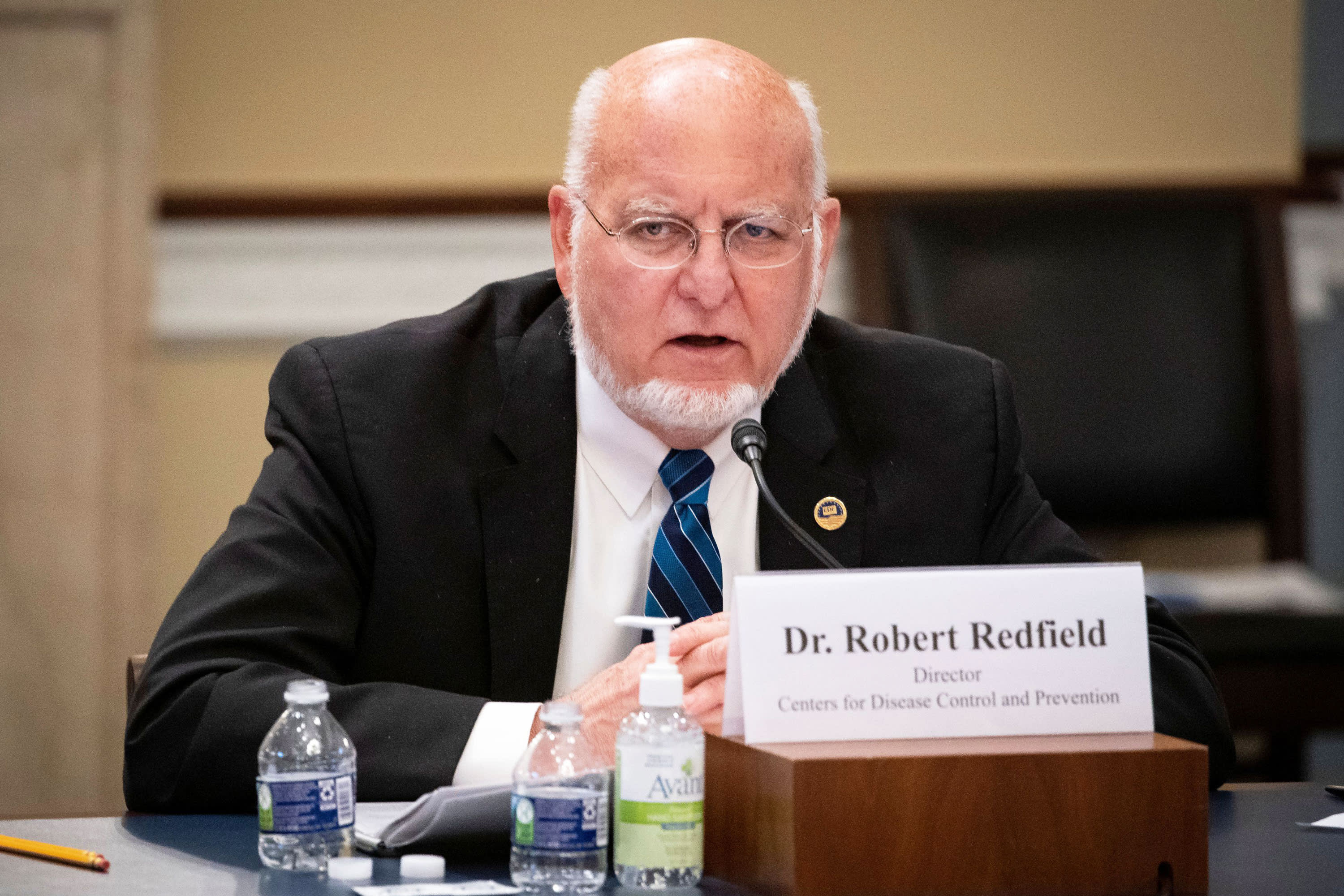CDC director says more than 90% of Americans remain susceptible to the coronavirus

Director of the Centers for Disease Control and Prevention Robert Redfield speaks at a hearing on COVID-19 response held by the House subcommittee on Labor, Health and Human Services, Education, and Related Agencies, on Capitol Hill in Washington, D.C., June 4, 2020.
Al Drago | Pool via Reuters
A majority of the U.S. remains susceptible to a coronavirus infection, Dr. Robert Redfield, director of the Centers for Disease Control and Prevention, told lawmakers Wednesday.
Covid-19 has spread across America at varying rates since it crossed U.S. shores in January, infecting as much as 15% to 20% of the population in some states and less than 1% in others, he said. One state said almost a quarter of its residents have had the coronavirus sometime this year, he added.
He said the CDC is in the process of a “very large” study that seeks to more precisely determine how widely the virus has spread across the country.
The rate of infection is important because epidemiologists believe it generally conveys some immunity against the virus for at least a few months.
“The preliminary results in the first round show that a majority of our nation, more than 90% of the population, remains susceptible,” he said at a Senate hearing hosted by the Committee on Health, Education, Labor and Pensions. “A majority of Americans are still susceptible.”
The coronavirus has infected more than 6.8 million people across the U.S., or roughly 4.8% of the U.S. population, according to data compiled by Johns Hopkins University and the U.S. Census Bureau. However, the true spread of the virus is likely much higher, Redfield has previously said, as many mild and asymptomatic cases go undiagnosed.
The comments cast even greater doubt on the feasibility of achieving so-called herd immunity, which is reached when enough of the population has developed immunity against the virus so that it cannot efficiently spread. Most scientists say 60% to 80% of the population needs to be vaccinated or develop antibodies through natural infection to achieve herd immunity, top World Health Organization officials have previously said.
Critics of business closures and public health restrictions meant to curb the spread of the virus have pointed to herd immunity without a vaccine as a potential solution to the pandemic. However, WHO officials and many epidemiologists have criticized the strategy because it would likely lead to widespread disease and death.
White House coronavirus advisor Dr. Anthony Fauci, director of the National Institute of Allergy and Infectious Diseases, said last month that allowing the virus to spread without control to achieve herd immunity would bring the death toll to a level that’s “totally unacceptable.”
“If you look at the United States of America with our epidemic of obesity as it were, with the number of people with hypertension, with the number of people with diabetes, if everyone got infected, the death toll would be enormous and totally unacceptable,” Fauci said on Aug. 31.
Redfield’s comments Wednesday come one day after the U.S. Covid-19 death toll topped 200,000, according to data from Hopkins.
Further complicating the herd immunity approach is the matter of how antibodies against the coronavirus behave. The body typically develops antibodies to help the immune system fight off infections. Health officials have said there is not enough data yet to indicate that coronavirus antibodies ensure immunity against the virus or to determine how long any protection might last.
—CNBC’s Berkeley Lovelace Jr. and Noah Higgins-Dunn contributed to this report.




